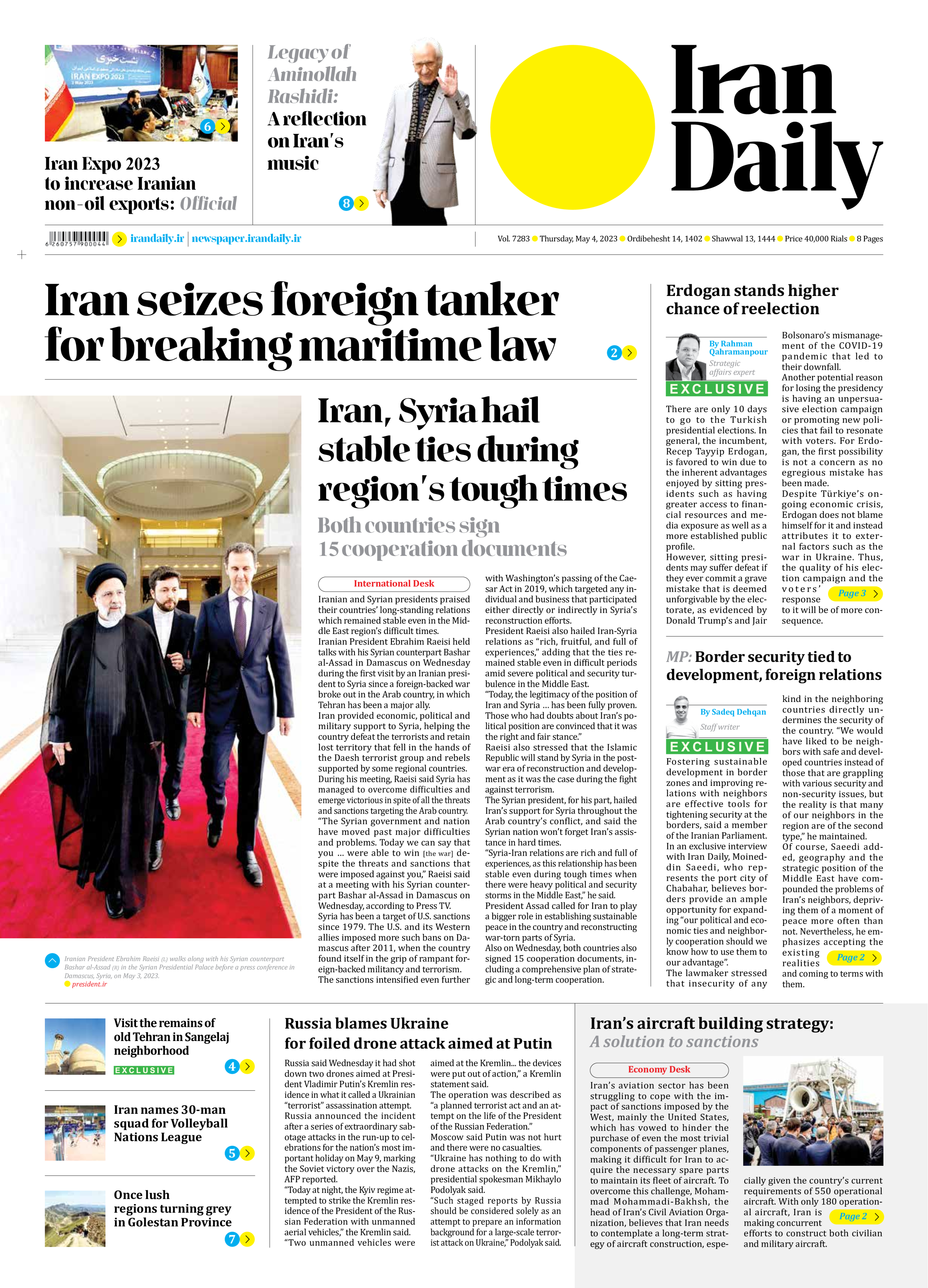
MP: Border security tied to development, foreign relations
By Sadeq Dehqan
Staff writer
Fostering sustainable development in border zones and improving relations with neighbors are effective tools for tightening security at the borders, said a member of the Iranian Parliament.
In an exclusive interview with Iran Daily, Moineddin Saeedi, who represents the port city of Chabahar, believes borders provide an ample opportunity for expanding “our political and economic ties and neighborly cooperation should we know how to use them to our advantage”.
The lawmaker stressed that insecurity of any kind in the neighboring countries directly undermines the security of the country. “We would have liked to be neighbors with safe and developed countries instead of those that are grappling with various security and non-security issues, but the reality is that many of our neighbors in the region are of the second type,” he maintained.
Of course, Saeedi added, geography and the strategic position of the Middle East have compounded the problems of Iran’s neighbors, depriving them of a moment of peace more often than not. Nevertheless, he emphasizes accepting the existing realities and coming to terms with them.
“Thus, under the current state of affairs, enhancing the country’s relations with the neighboring countries can be considered the correct policy for the purposes of tightening security in Iran’s border zones and improving its standing in the broader region.”
That is an area where the moderate MP, who represents the province of Sistan and Baluchestan, lauds the efforts of the incumbent government despite being a critic of it in many other areas.
“The policy of the government with regard to its eastern neighbor, Pakistan, has breathed life into the markets held at the border between the two countries and improved the local economy of the surrounding zones as well as the national economy of Iran,” Saeedi stated.
He also highlighted the role that these border markets play in increasing the security of the borders and bringing the people of both countries closer together, especially since they have many cultural and ethnic commonalities. The MP notes that the southwestern province of Pakistan, which is meaningfully also named ‘Baluchistan,’ was once a part of Iran, but separated from it during the reign of Nassereddin Shah Qajar. Given this shared root, it has been no wonder to Saeedi that many security issues in the region were solved through the same cultural channel in the past.
“Now, this potential can be exploited to cement the cultural ties between Iran and Pakistan,” he added.







